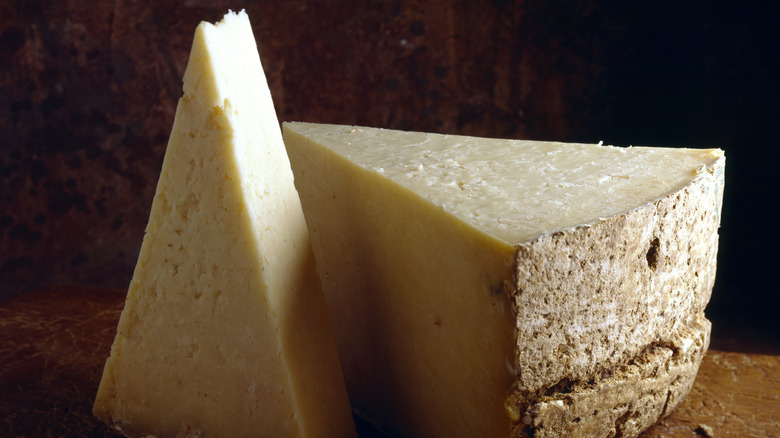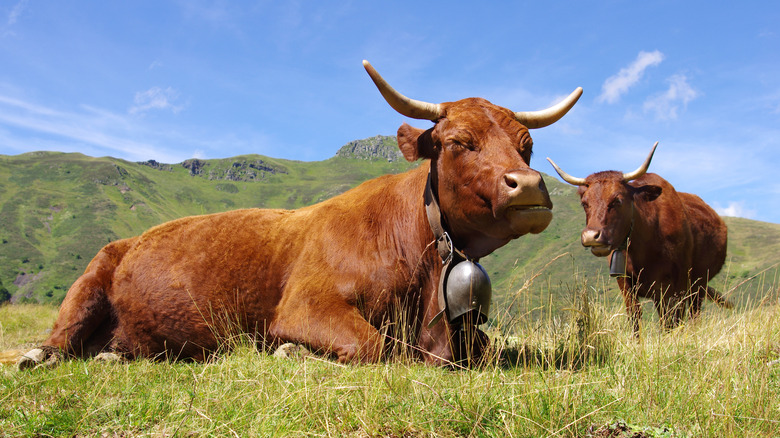The Real Reason One Of France's Oldest Cheeses Is Disappearing
When it comes to making a snack, 2,000 years of production sounds like a pretty good run. According to Taste of France Magazine, that's how long Salers cheese has been made in Salers village in Auvergne, France. This OG of the fromage world is made entirely from raw cow's milk rather than its different-tasting counterpart, pasteurized milk. As the publication tells it, the cheese has notes of "grass, hay, nuts, hazelnut, and citrus butter." Though this cheese has been around for quite some time, there are some strict rules in place to ensure Salers' authenticity today.
The Appellation d'Origine Protégée (AOP) is a system of certifying products to ensure certain attributes are met including where the product is from and how it's made (via fourme-ambert). When it comes to Salers, to land that AOP stamp of approval, Food & Wine explains, the AOP requires, among other things, that "the cheeses must be produced by Salers cows with a minimum of 75% of their feed coming from grass in local pastures." Unfortunately, there is a major weather phenomenon stopping these cows from feeding on the food source required to make Salers cheese.
A drought has made grass hard to come by
As Reuters reported on France's "worst drought on record" earlier this month, the outlet also announced that farmers were worried about a milk shortage for the upcoming winter due to a shortage of fodder. But, well before winter had a chance to arrive, France's dry spell has already caused an alarming dairy problem. According to The Guardian, the production of Salers was halted due to the decrease in grass caused by the drought.
Though one farmer explained the Salers cows haven't "been able to graze since late June" because of the lack of rain, Food & Wine reports that there is hope for future rain that could result in the cheese's production resuming by September. For the 76 breeders whose cows produce the milk required to make the cheese, going rogue and switching up their cows' diets isn't even an option. Head of the local group of Salers cheesemakers Laurent Lours explained, "Salers is a seasonal cheese, made in the grass season. That's one of the pillars of its identity," clarifying that with the absence of the local grass the cheese would taste entirely unlike itself (via The Guardian). So, for fans of one of France's oldest cheeses, let's hope the Salers cows have some greener pastures in their near future.

